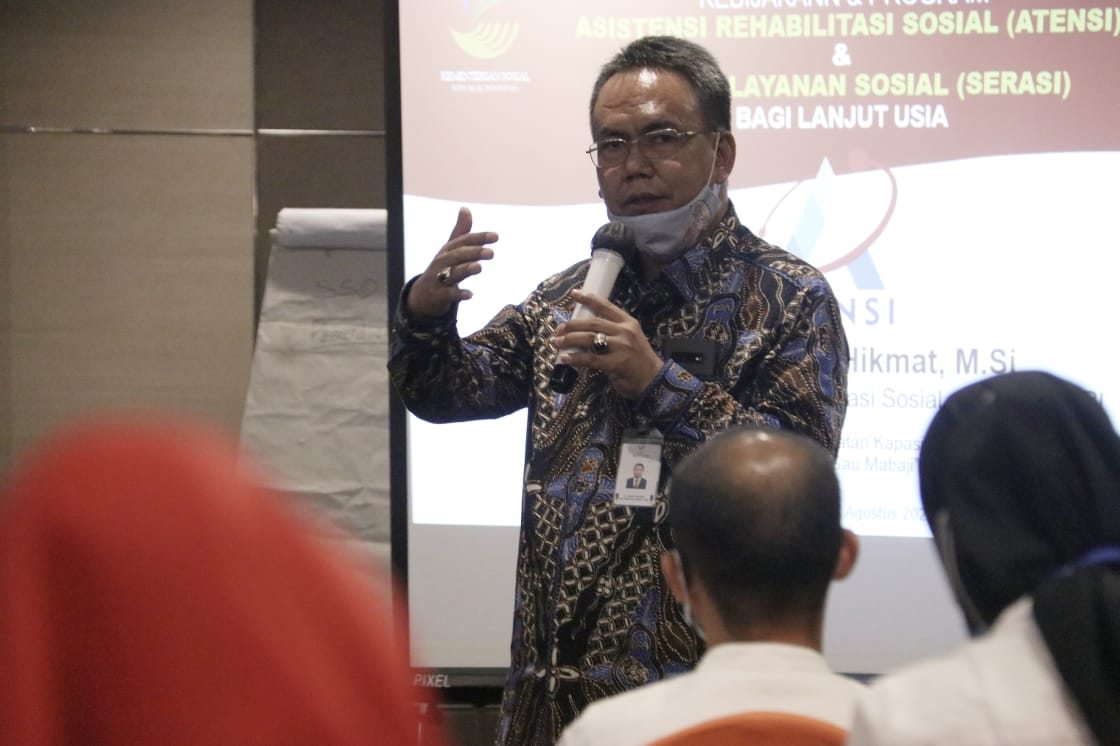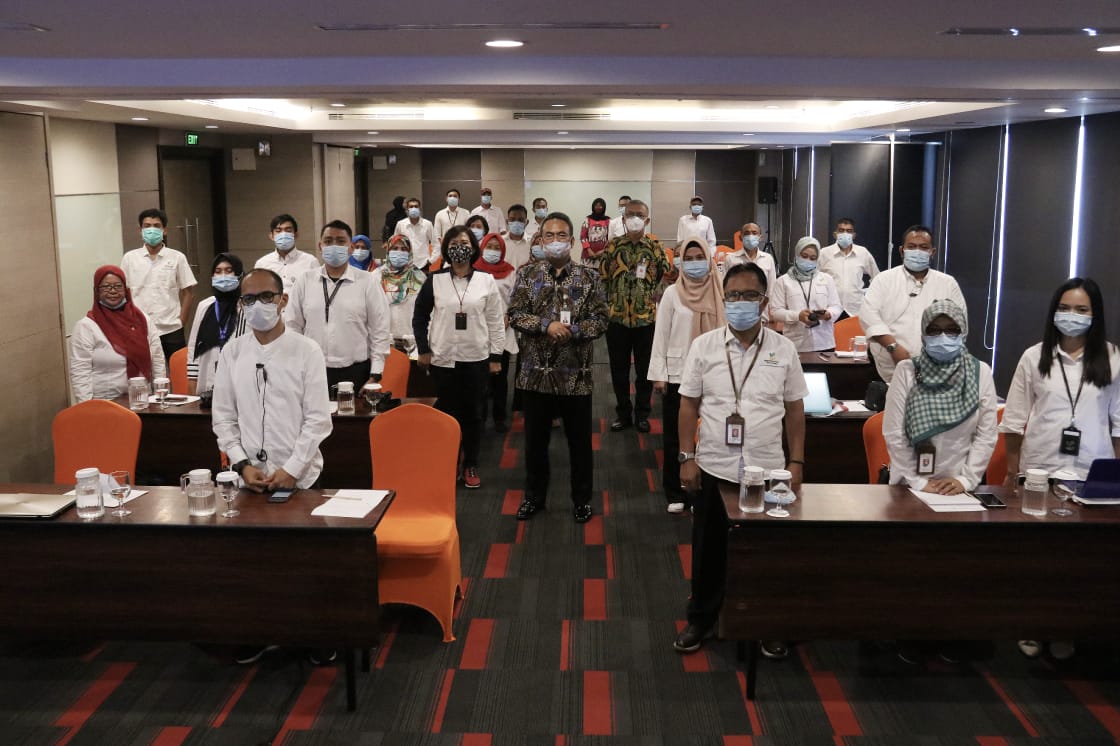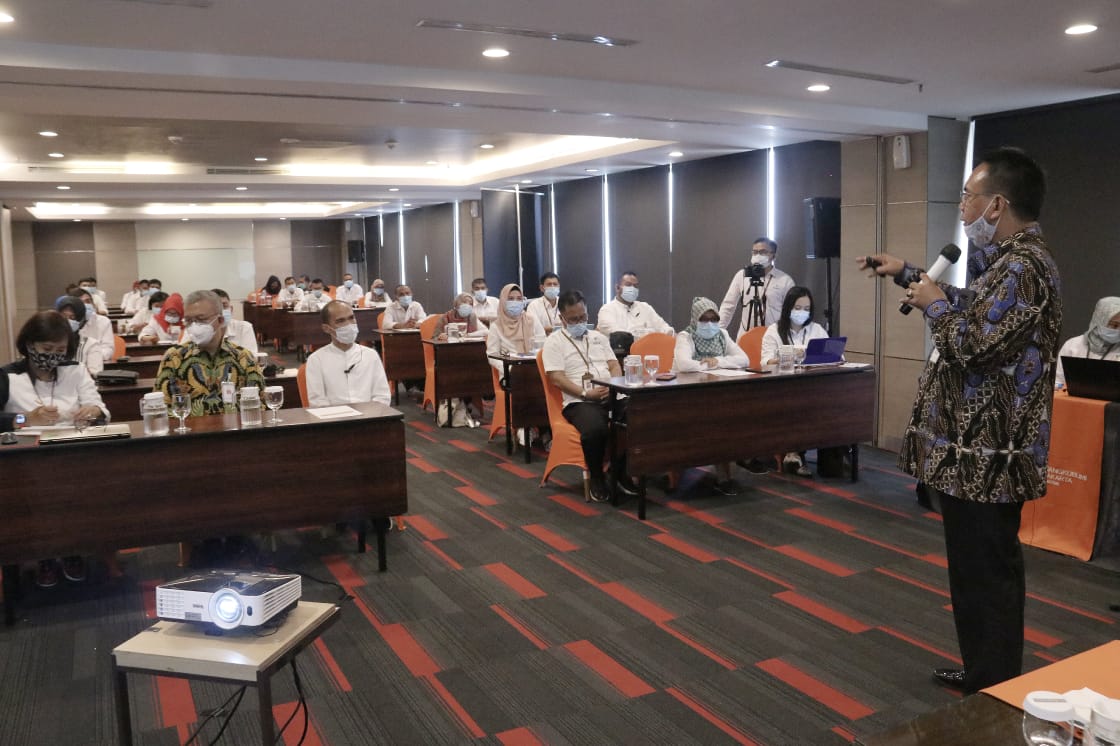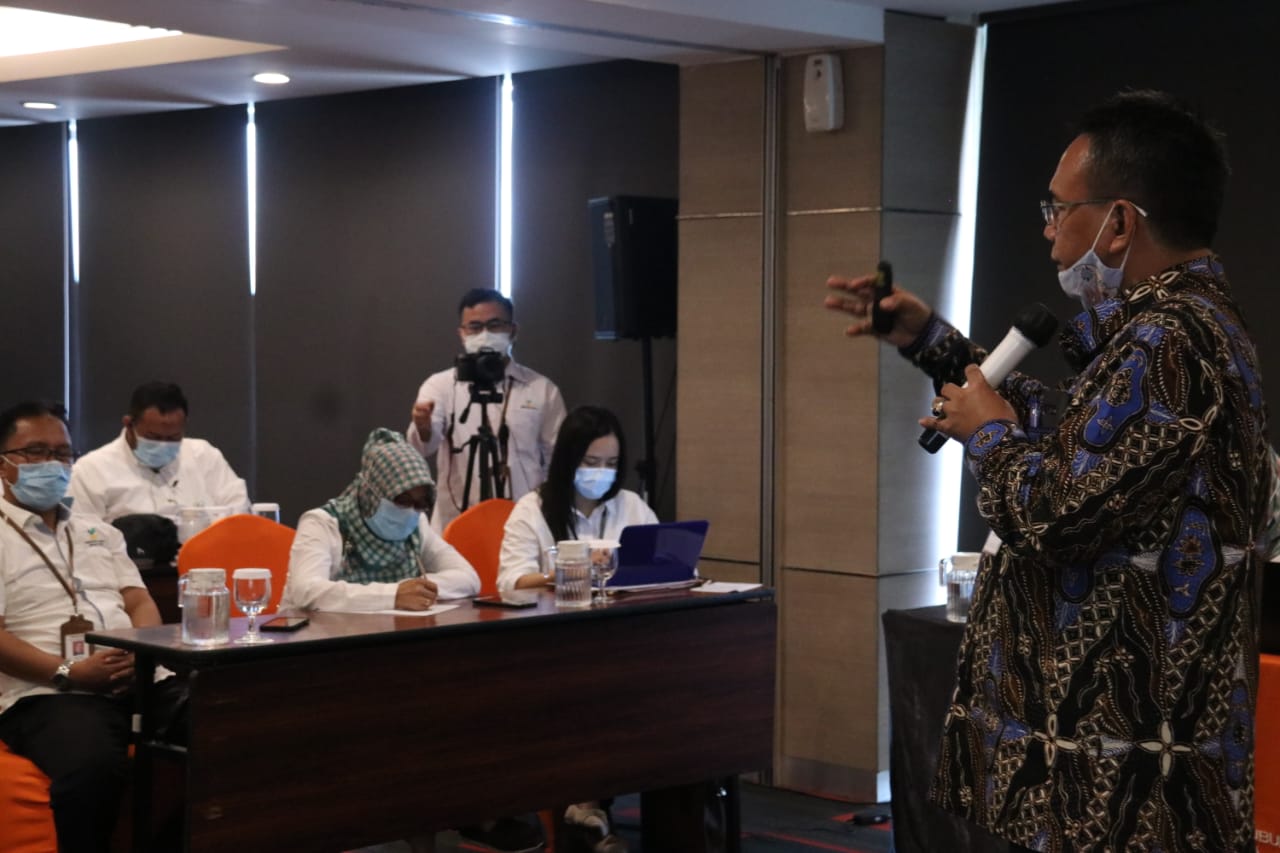YOGYAKARTA (25 August 2020) - In the success of the Social Rehabilitation Program through ATENSI (Social Rehabilitation Assistance), the Ministry of Social Affairs (Kemensos) emphasized the importance of the role of human resources (HR) in the Center for the Elderly to handle the welfare of the elderly as one of the vulnerable groups.
The Director General of Social Rehabilitation, Harry Hikmat, said the ATENSI program was implemented at the social rehabilitation center level with the scope of implementation in the regions. According to him, this was done to target the empowerment of the smallest scope of the elderly, namely the family.
Harry explained, based on data from the Statistics Indonesia (BPS) and the National Socio-Economic Survey (Susenas) in March 2019, data on the elderly in Indonesia reached 9.60 percent or equivalent to 25.66 million people. Of that number, continued Harry, 27.3 percent of them live with their families and 40.64 percent of them live with three generations. This means that the majority of the elderly in Indonesia live with their children and grandchildren.
The role of the family is crucial to support the potential of the elderly. Harry gave an example, the role of the elderly in the family can be in the form of involvement in decision making or caring for babies and children along with support and assistance in caring for the elderly.
Therefore, the involvement of families in the care of the elderly is one of the keys to expanding the reach of the ATENSI program.
"Without involving the role of the family in the care of the elderly as a top priority, it will be difficult for us to expand (the scope of the program's targets)," said Harry Hikmat in the presentation of the Social Rehabilitation Program Policy through ATENSI and SERASI in the Human Resource Capacity Building event at the Gau Mabaji Gowa Elderly Center at the Harper Hotel Malioboro.
Apart from being family-based, Harry said that small-scale social rehabilitation assistance is also community-based and residential based. According to him, a number of steps such as providing training or making pocket books that are easy to apply by caregivers at the family level can be taken by the Centers to implement these approaches. Harry assessed that the involvement of the closest parties to the elderly could be a means for the center to reach more elderly people.
"Before thinking about the role of nurses outside the family, family support must be prioritized first. Prepare caregivers in the family, but by increasing knowledge, skills and attitudes towards the elderly," he said.
Furthermore, Harry said strengthening the social rehabilitation system that is integrated with the protection of the elderly must be continuously pursued. Where in this effort must also be supported by strengthening the capacity and institutions of social rehabilitation centers and Social Welfare Institutions for the Elderly as well as increasing the role of the community and the private sector in social services for the elderly.
Harry hopes that these steps can be implemented by the elderly center and will affect the improvement of the service paradigm in line with the policies issued by the government.
"Such as the reach of social services, if previously it was limited and exclusive, then it can reach all residents who experience social problems. Or, what was originally focused on services based on social institutions/orphanages will change by prioritizing the role of family, community and social services in temporary institutions, " he explained.
More deeply related to efforts to improve the welfare of the elderly, Harry said that all parties must play a role in achieving this goal. Because, the elderly are also entitled to services that can support their social functions as stated in Article 1 Point 1 of Law No. 11 of 2009. Therefore, Harry said that the government through the Ministry of Social Affairs is also now present with the SERASI (Social Service Center) program which is expected to make it easier for the elderly to access various services.
That way, the SERASI program makes it easier for citizens to access government and community ATENSI services in order to increase personal capacity and family resilience to fulfill their basic rights and protect families.
Furthermore, "For public services, we try to equip it with a social service center so that we can prioritize the elderly to get support from various sectors," he concluded.
Furthermore, Harry also explained that SERASI is a joint work between professions, sectors and levels. So that in its implementation, SERASI will fulfill the function of increasing inclusiveness and wider outreach as well as handling complaints and extraordinary events quickly and accurately.
In other words, along with the ease of public access to services, the presence of SERASI will also make it easier for the government to carry out integrated monitoring and collect integrated data that can later be managed or used for targeting various kinds of further programs.
Participants in the human resource capacity building activity were mostly 32 employees of the Gau Mabaji Elderly Center, consisting of civil servants, structural, functional junior social workers, functional candidates for social workers, functional nurses, functional candidates for nurses, general functional, PPNPN, asssitant professional staff.
 English
English
 Bahasa
Bahasa




